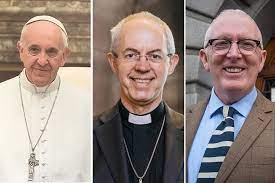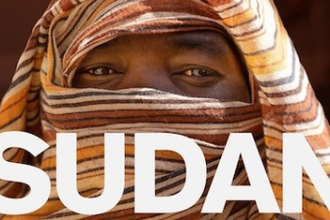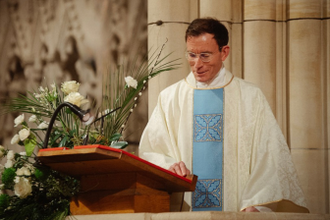Clashes will not stop Church leaders' visit, says Sudanese bishop

Pope, Archbishop and Moderator, Photo credit: Anglican Communion News Service
Catholic bishops in South Sudan are ready to welcome Pope Francis' upcoming visit to South Sudan at the beginning of February, as a blessing in a difficult time. A Catholic bishop in the country has described the visit as "extremely crucial" for peace and stability in the region and deplored recent violence which has prompted more people to flee their homes.
Bishop Stephen Nyodho Ador Majwok of Malakal, South Sudan, said the visit has special significance for South Sudan, and he expressed distress over the deplorable conditions of the displaced people in the areas hit by clashes. "Malakal Diocese is most affected and needs the peace most," he said; "I have just returned from the area where people are most affected and what they need is peace, so that they can go back."
Church leaders in South Sudan say the papal visit will encourage peace and reconciliation, and demonstrate the universal church's solidarity with the country. It is also expected to encourage political leaders to choose peaceful resolutions. The fact the apostolic trip is ecumenical also helps in maintaining peace.
The visit is part of an 'Ecumenical Pilgrimage of Peace', where Pope Francis will visit South Sudan's capital, Juba, along with Archbishop Justin Welby of Canterbury and the Rev. Iain Greenshields, moderator of the General Assembly of the Church of Scotland, from 3-5 February. The pope will first travel to the Democratic Republic of the Congo (DRC) 31 January-3 February.
The Church leaders have been expressing their desire to visit the world's youngest nation where Christians are the majority. The country gained its independence in 2011, but barely two years later, a political dispute triggered a deadly conflict. By the time it ended, following a peace deal in 2018, an estimated 400,000 people had been killed. While large-scale fighting has ended, deadly inter-ethnic clashes and militia attacks continue.
Fr John Gbemboyo Joseph Mbikoyezu, coordinator of the Sudan Catholic Bishops' Conference, said the preparations for the visit are on schedule, with the renovation of churches and roads complete, choirs prepared and arrangements to broadcast the visit live being made. And he described it as "a moment of accountability for what the leaders have done in regard to peace". After a retreat in April 2019 at the Vatican, Pope Francis knelt and kissed the feet of the leaders of South Sudan's government and its opposition, as he encouraged them to strengthen the country's peace process. The pope had asked President Salva Kiir and Reik Machar, a former opposition leader, to "stay in peace".
Meanwhile, Archbishop Marcel Utembi Tapa of Kisangani, the chairman of the bishops' conference in DR Congo, which the pope will visit just four days ahead of South Sudan, said, "the pope comes to encourage us and we hope his words will move us toward unity, peace and security."
Pope Francis will meet with the country's authorities, victims of the conflict in the eastern part of DR Congo and representatives of charitable organisations. Here too there have been recent instances of violence, including the bombing of a Pentecostal church in Kasindi, eastern Congo, where Islamic militants claimed responsibility for the attack that killed at least 14 people and injured more than 60. Archbishop Tapa condemned the attack, asking for international help and crying out to the militias to drop their arms. "They cannot continue killing, and taking life, which is a gift from God," he said last week.


















